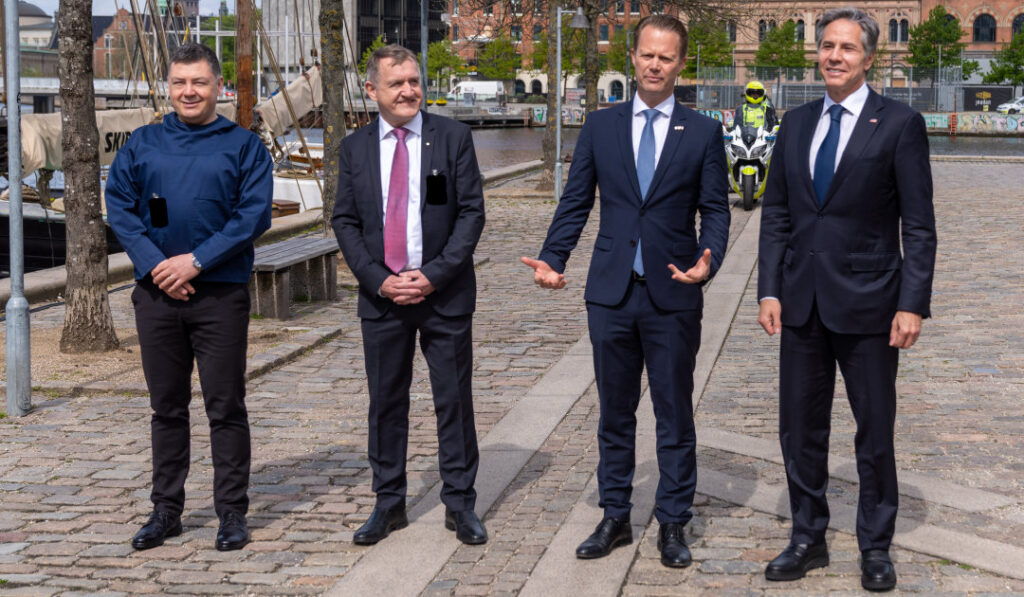
Three years ago, when America’s president at the time admitted that he was toying with the “concept” of buying Greenland, the idea was dutifully dismissed as “absurd” by Denmark’s then newish prime minister, Mette Frederiksen. Miffed by Ms Frederiksen’s “nasty” and “inappropriate statement”, the president then summarily cancelled a planned state visit to Denmark.
What got drowned out in the discussion over the offer and its fallout were the comments (the likes of “We’re very good allies with Denmark,” and “We protect Denmark”) the president made to illustrate why he thought it would make sense for Denmark to at least entertain the idea of selling.
Ms Frederiksen, like all of her predecessors since the Second World War, would have to admit that his comments were a gross understatement of how much Denmark depends on America for its security and of how closely aligned the two countries are. Particularly since the early 2000s and the various campaigns of America’s war on terror, Denmark has marched to Washington’s drum. Indeed, so important is Denmark’s relationship with America that, in a 2021 address about the future of trans-Atlantic relations, Ms Frederiksen warned that Europe, regardless of how it well it got on with the occupant of the White House at any given time, would be unwise to let “so much as a sheet of paper” come between it and America.
It should have come as little surprise, then, that Denmark’s new strategy for its foreign-policy decision-making has America as its cornerstorne. Published Monday, the paper echoes Ms Frederiken’s sentiment by making Washington the indispensable partner in all aspects of what it hopes to achieve in the world in the long-term. This includes the Arctic, where, in Copenhagen’s perspective, the goals of peace, stability and a clean environment are impossible without its involvement.
Rather than point fingers at what and whom policymakers need to be aware of in the short-term (that job is left to the snoops at the end of each year), the strategy is aspirational, identifying the country’s goals, how it hopes to achieve them and who its allies are. Or, as the the strategy puts it: “What we are fighting for, whom we are fighting with, and what we are fighting against.”
However diplomatically worded, such statements of interest cannot avoid identifying just whom Denmark is fighting against, and it does not take reading between the lines to know that Russia (reasserting itself in Denmark’s near-abroad in the Baltic Sea and the Arctic) and China (ascendant everywhere) are just as much a source of worry in Copenhagen as they are in Washington. But, in suggesting that it is the situations these countries have created that is the problem, not the countries themselves, Copenhagen hopes that it can open the door wider to finding an outcome that is acceptable to all.
Nowhere is this more true than in the Arctic, where Copenhagen invokes not just the Arctic Council, but also the UN and the Illulissat Declaration, which commits countries bordering the Arctic Ocean to solve their differences through non-military means, to remind countries in the region of their pledge to collaborate with each other. What’s more, it says it will work unilaterally to address potential military conflicts.
More likely to make an impression in the Kremlin, however, will be Copenhagen’s support for a greater role for Nato in the region. The Danes call this apparent contradiction having a back-up plan in the event that it needs help to protect Greenland and argue that Nato is a defensive alliance anyway, so its presence can’t be seen as a precursor to conflict. Moscow, which has never accepted that Nato does not have hostile intentions, will take this a proof that it is right.
Ms Frederiksen might consider that thought absurd as well, but, this time, Washington, regardless of who is residing in the White House, is likely to agree with her.
Kevin McGwin, PolarJournal
More about this topic





